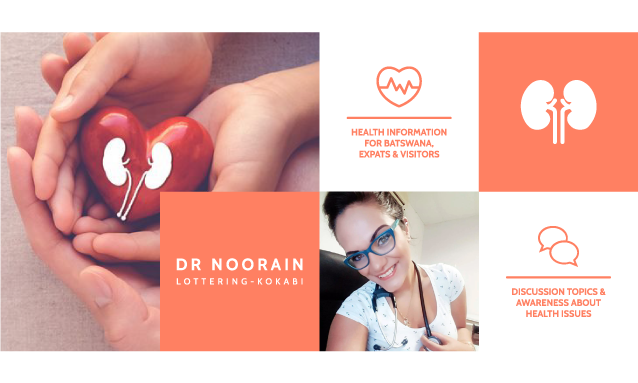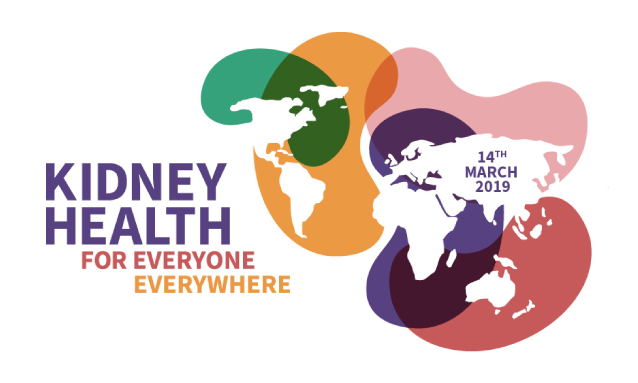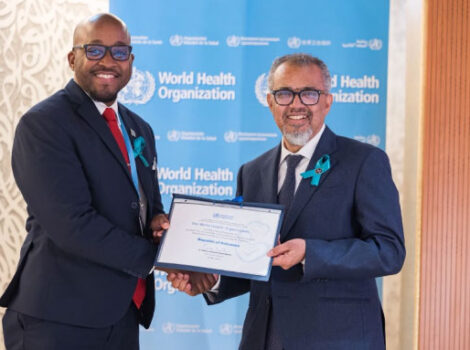
Kidney disease is an invisible monster that slowly creeps up and gradually, painfully destroys its victims. It truly is one of the most formidable diseases plaguing the world at large, with statistics revealing around 850 million people worldwide are suffering from some form of kidney disease, with 2.4 million losing the battle to the condition each year.
In fact, kidney disease has now been identified as the 6th fastest growing cause of death. Hence why each year the International Society of Nephrology (ISN) and the International Federation of Kidney Foundations (IKFK) launch an awareness campaign on the second Thursday of March. The campaign concentrates on spreading awareness of the importance of kidneys with the aim of reducing the impact of kidney disease and its associated health problems.
This year, World Kidney Day was observed on the March 14th with the theme “Kidney Health for Everyone Everywhere”; which is the inspiration for this article, to educate all YourBotswana readers on kidney disease and all its nitty-gritties.

Understanding kidney disease
Acute Kidney Injury (AKI) refers to the abrupt loss of kidney function due to many different causes ranging from drugs to other illness and is actually an important precursor to CKD
Chronic Kidney Disease (CKD) – our main focus – refers to a long-standing condition where the kidneys have lost their normal functioning
What exactly does “kidney function” mean and where are the kidneys?
We all have two kidneys, each about 10-13cm long and 5-7.5cm wide, located below your ribs in the region of your lower back. As for their function, think of kidneys as your body’s filters that allow all your blood to pass through at a rate of approximately 60 ml per minute. In the process, they clean out of toxins and debris, disposing of them via urine. Thus, quite clearly, your kidneys are vital to your survival.
As far as Chronic kidney disease – CKD is concerned, while it’s most common with advancing age, the brutal truth is that anyone can get it; from toddlers to the elderly. CKD is a rather sly disease that remains silent while worsening over time, eventually leading to the kidneys not working at all.
Unfortunately, this has become very common in Botswana, with many sufferers presenting to the health care practitioners completely failed kidneys. Thus, we need to understand predisposing factors as well as signs of the disease and the screening strategies that can be used to destroy the diseases before it destroys us. Essentially, anything that puts a strain on the kidneys can cause kidney disease. A look at this from the 3 most common angles:
Medicine/Drugs:
- There are some drugs that while helping certain other conditions can cause harm to your kidneys, for example some ARVs used in HIV or Metformin used to treat diabetes.
- Traditional/herbal medicine, which is still very popular in Botswana, can prove to be very harsh on the kidneys, leading to diminished functioning.
Medical Conditions:
- High Blood Pressure – creates strain on the tiny blood vessels that supply the kidneys, which eventually rupture hence depriving the kidneys of blood supply. This leads to loss of function.
- Diabetes Mellitus – when uncontrolled, the excess glucose in the blood damages the kidneys’ filtration capability.
- High Cholesterol – when uncontrolled, it leads to a build up of fatty deposits in the tiny blood vessels of the kidneys, which leads to loss of adequate functioning.
- Urine flow blockages – kidney stone or an enlarged prostate can lead to backflow pressure, which eventually damages the kidneys
- Malaria
Lifestyle/Habits:
- Increased alcohol intake
- Smoking
- Excessive salt intake
- Excessive energy drink intake
- Decreased water intake
- Delayed urination (holding urine in for prolonged periods of time)
As previously mentioned, CKD is a sly monster so in the early stages there are minimal to no symptoms/signs that indicate that your kidneys may be in trouble. As such, routine kidney function tests are very important in detecting decreased function before the symptoms develop.
The following symptoms appear in the critical stage of your kidneys failing when the filtration rate has fallen to less than 15 ml per minute:
- Tiredness and weakness
- Muscle cramps
- Difficulty sleeping/insomnia
- Lack of appetite and weight loss
- Swollen ankles, feet or hands
- Shortness of breath, difficulty breathing
- Generally feeling unwell
- Blood in your urine
- Itchy skin
- Erectile dysfunction in men
An important fundamental part of CKD is understanding that while there is no cure for it, there are ways of preventing its development and also slowing its progression (when it is inevitable such as in diabetes or hypertension). These methods include:
Lifestyle changes
- Increase daily water intake
- Decrease energy drink intake
- Decrease alcohol intake
- Stop smoking
- Reduce salt intake
- Reduce processed food intake
- Eat a healthy balanced diet
- Exercise regularly
- Avoiding traditional/alternative medicine that has not been approved by your medical doctor
Regular Check-ups with your doctor
- Check your kidney function at regular intervals
- Control any associated medical conditions such as diabetes
In cases where the kidney damage is too far-gone, these are treatment options
- Dialysis – involves connecting the body to a machine that imitates some of the essential kidney’s functions such as filtration and blood pressure control.
- Kidney transplant – when the kidneys have completely failed, a compatible donor may be found and a transplant done.
- While CKD is a truly daunting and scary disease, there are many people with it who are living relatively normal, long and healthy lives despite the odds.
The only way for us to beat this disease is by implementing the mentioned preventative measures and acting swiftly for early detection and treatment. I, thus appeal to all our readers with this year’s World Kidney Day campaign “Join our call for Kidney Health for Everyone Everywhere!”
By YourBotswana writer:
Dr. Noorain Lottering-Kokabi, BMSc, MBBS (UWI MONA)
Born in May 1989, Dr Noorain hails from Gaborone Botswana. She completed her Pre-Med at the University of Botswana and went on to attain her BMSc and MBBS degrees at The University of The West Indies in Kingston Jamaica.
Having practised medicine in both the Caribbean and Botswana, she has been exposed to an array of conditions and ailments that have in turn widened her scope of expertise. She is also involved in multiple philanthropic projects that aim to equip youths with relevant life skills and tools they need throughout their lives.
A young, diligent, enthusiastic professional with a formidable hunger to continuously seek further knowledge, both in alternative and modern medicine, Dr. Noorain aims to better the healthcare in the communities she serves.
She currently works in community health providing first line care for the community as a whole. Her current position has enabled her to manage both common and complex cases. These cases range from the common cold/flu, bites to mental health, uncontrolled diabetes, hypertension, tuberculosis and HIV (along with the associated complications). Having worked in the Caribbean, Dr. Noorain is very familiar with the treatment of tropical diseases and severe symptoms that may arise from such diseases.
Dr. Noorain provides quality outpatient care ensuring that her patients are fully educated on their respective illness. After all a patient that is well educated on their illness is more likely to comply with medical protocols and prevention strategies, hence reducing potential mortality and morbidity statistics, which reflects a healthy and happier Botswana.
Dr Noorain is a young, career driven, passionate, culturally and medically diverse professional. She is excited about her collaboration with YourBotswana, hoping to use the platform to educate citizens and visitors alike on current health issues in Botswana.



